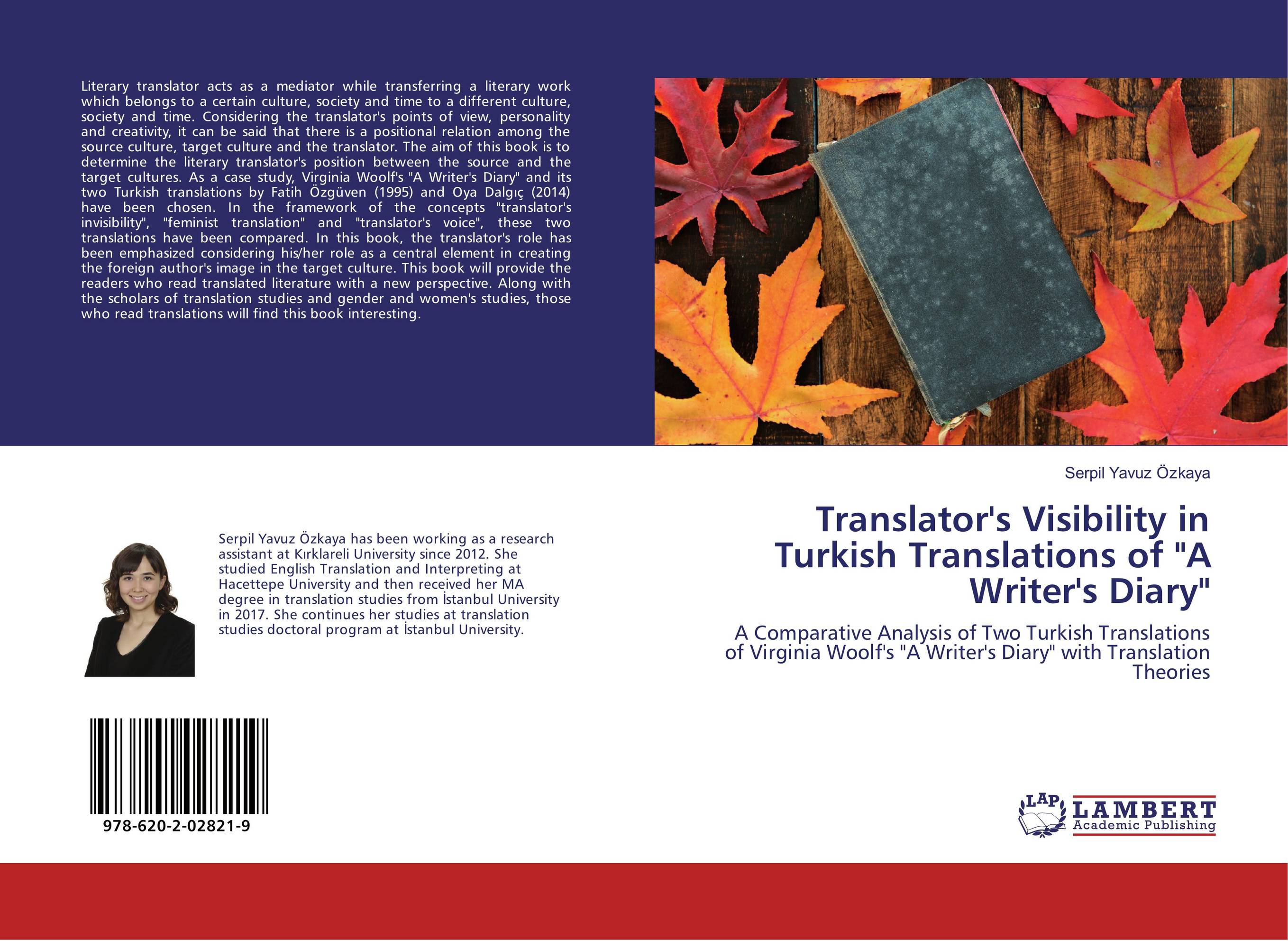| Поиск по каталогу |
|
(строгое соответствие)
|
- Профессиональная
- Научно-популярная
- Художественная
- Публицистика
- Детская
- Искусство
- Хобби, семья, дом
- Спорт
- Путеводители
- Блокноты, тетради, открытки
Translator's Visibility in Turkish Translations of "A Writer's Diary". A Comparative Analysis of Two Turkish Translations of Virginia Woolf's "A Writer's Diary" with Translation Theories

В наличии
| Местонахождение: Алматы | Состояние экземпляра: новый |

Бумажная
версия
версия
Автор: Serpil Yavuz ?zkaya
ISBN: 9786202028219
Год издания: 2017
Формат книги: 60×90/16 (145×215 мм)
Количество страниц: 84
Издательство: LAP LAMBERT Academic Publishing
Цена: 16318 тг
Положить в корзину
Позиции в рубрикаторе
Отрасли знаний:Код товара: 178234
| Способы доставки в город Алматы * комплектация (срок до отгрузки) не более 2 рабочих дней |
| Самовывоз из города Алматы (пункты самовывоза партнёра CDEK) |
| Курьерская доставка CDEK из города Москва |
| Доставка Почтой России из города Москва |
Аннотация: Literary translator acts as a mediator while transferring a literary work which belongs to a certain culture, society and time to a different culture, society and time. Considering the translator's points of view, personality and creativity, it can be said that there is a positional relation among the source culture, target culture and the translator. The aim of this book is to determine the literary translator's position between the source and the target cultures. As a case study, Virginia Woolf's "A Writer's Diary" and its two Turkish translations by Fatih ?zg?ven (1995) and Oya Dalg?? (2014) have been chosen. In the framework of the concepts "translator's invisibility", "feminist translation" and "translator's voice", these two translations have been compared. In this book, the translator's role has been emphasized considering his/her role as a central element in creating the foreign author's image in the target culture. This book will provide the readers who read translated literature with a new perspective. Along with the scholars of translation studies and gender and women's studies, those who read translations will find this book interesting.
Ключевые слова: domesticating, foreignizing, Translation Studies, translator's invisibility, feminist translation, Gender, Literary Translation, Sex



